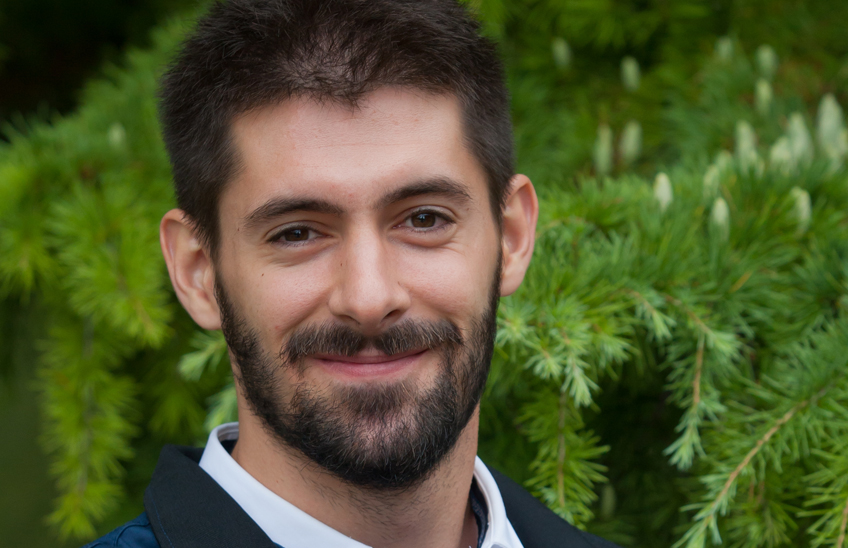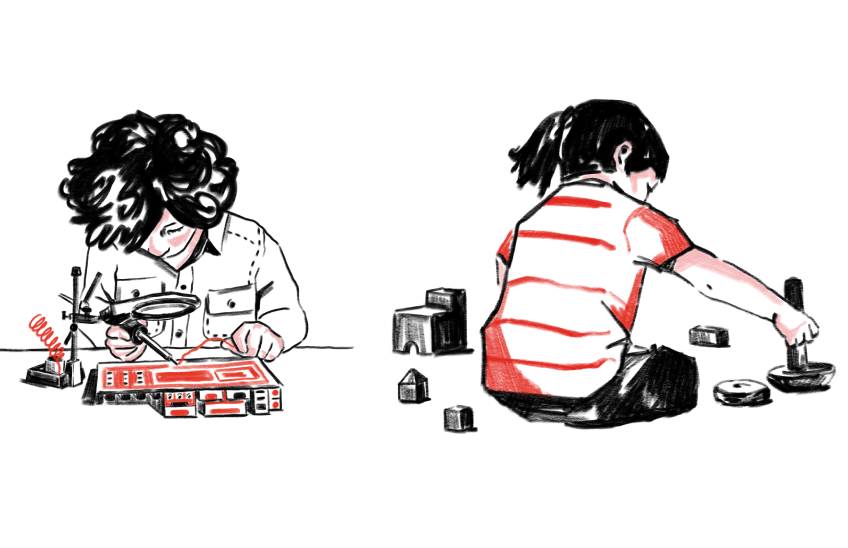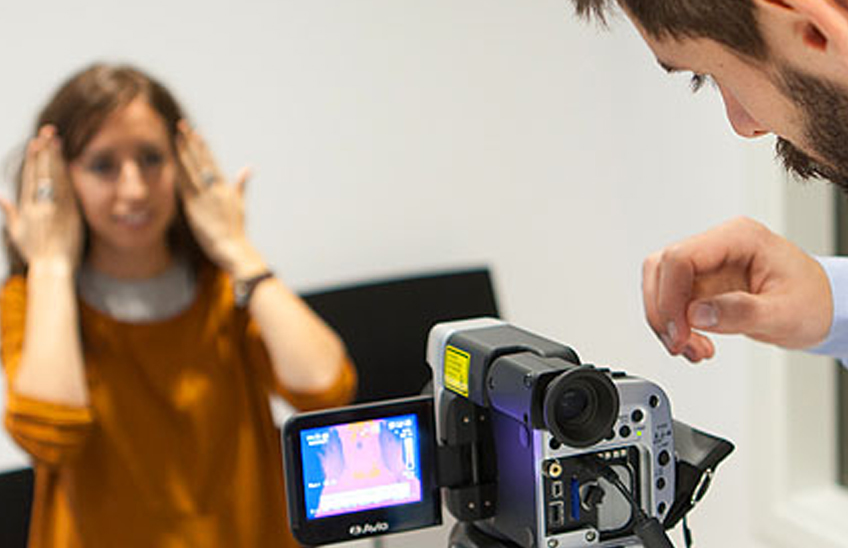The relationship between body temperature and frustration is being studied.
The School of Education and Psychology is carrying out a research through which it seeks to establish the relationship between frustration and body temperature. In the following interview, its main researcher , Carlos García Roda, brings us closer to the study.

PhotoManuelCastells/
16 | 04 | 2018
What is the goal of the study?
We are conducting a research on frustration using thermography, with the goal to observe what happens at the thermal level when this emotion is experienced. This data could be used as financial aid to fill in the information we have about this particular emotion and further define its characteristics. For this purpose, a recording of the temperature of the face will be made with a thermographic camera. This camera subject captures infrared thermal radiation emitted by a body and applies a filtering process that allows to differentiate the temperature of each part of the body recorded. As it is a recording, the process is totally innocuous and it is not necessary to place sensors on the skin or other instruments that require a contact with the area to be recorded.
The images obtained will be stored in a video file to which only the researchers of this study will have access and which will be used only in the framework of this research. This video has a special extension and it is only possible to reproduce it with a specific program provided by the distributor of the camera model that we are using. The video will only be used to obtain the temperature of certain parts of the face in specific time fragments and will not be displayed in any other context. Finally, each participant will be registered with a numerical code in order to maintain the confidentiality of each volunteer.
How many volunteers are needed?
We are looking for about 50 participants between the ages of 18 and 50.
What characteristics should they have?
For this subject thermographic records are usually given some recommendations to get a proper temperature measurement such as: Do not drink coffee, alcohol or caffeinated beverages 2 hours before the study; it is also recommended to take the recording area, in this case the face, completely uncovered and trying not to apply lotions, creams or makeup; it is also recommended not to exercise an intense activity before the recording as well as avoiding very large meals.
How do you work with them?
The study lasts approximately average hour and its development begins with an acclimatization to the conference room for 10 minutes. During this time the study and its characteristics will be explained in more detail and some demographic data such as age or nationality will be collected. After these 10 minutes, a first recording with the camera will begin to see the resting state temperature. Then a simple task will be passed with a computer for about 5 minutes and after its execution the thermal activity of the face will be captured again for 6 minutes.
Before and after the second thermographic recording, a brief assessment of mood will be performed through the Self Assessment Manikin test (SAM) and the evaluation Mood Scale (EVEA). Both are brief self-recording tools whose questions ask reference letter how a person feels at the precise moment of the assessment.
Why is this subject of programs of study important in research?
We believe that the information obtained in this study can allow us to observe whether there is a differentiated heat map for frustration, and whether the organism is mobilized in a specific way when we experience this emotion. These data can lead to establish real and significant differences when experiencing different emotions. We hope that with this information we will be able to better understand the concept of frustration and the possible usefulness of this knowledge in the practical field ( educational, sports, clinical...).
How can I participate in the study?
The research takes place in a recording studio located on the floor leave of the Amigos Building of the University of Navarra, and the schedule of this varies depending on the availability of each participant and exceptionally on the possible use of the recording studio. To contact us at contact you can use the following e-mail address cgarcia.55@alumni.unav.es.


